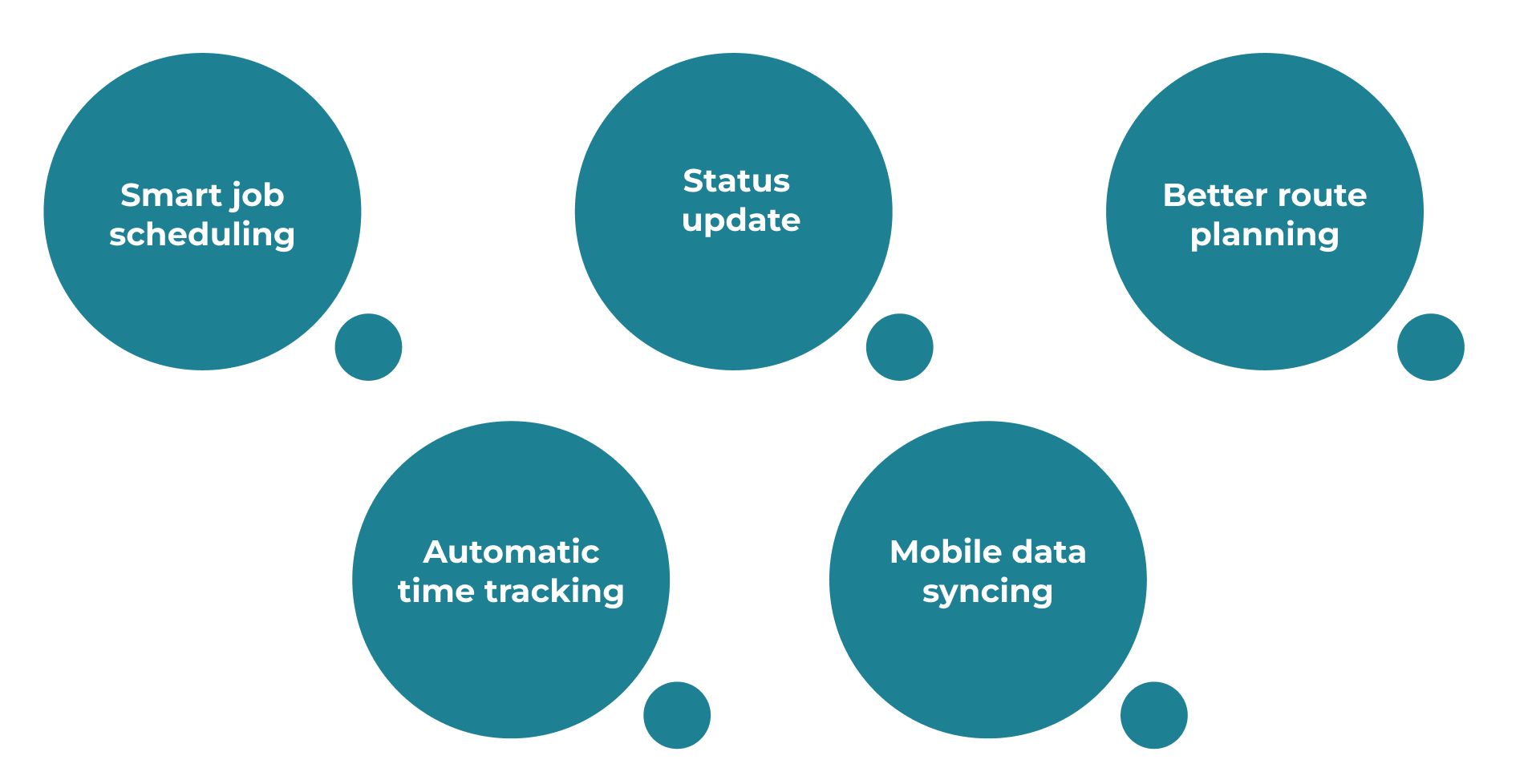How to Master Account Management Software in 7 Easy Steps?
A well-chosen customer relationship management solution optimizes field operations through automation and better data handling.
What is Field Service CRM
A modern field service CRM offers a complete solution that combines customer relationship management with field service operations. This integrated system works as the central nervous system of service organizations and connects field technicians, office staff, and customer data in a unified platform.
Core Capabilities and Integration Field service CRM systems excel at centralizing critical operational data and automate administrative tasks. The platform helps organizations track and manage all customer interactions, service histories, and equipment maintenance records up to the minute. These systems blend with field service management software to help with:
- Customer data centralization and access
- Automated workflow management
- Real-time service tracking and updates
- Resource allocation optimization
- Inventory and asset management
- Mobile technician support
Field service CRM’s true power comes from its ability to sync data in all business operations. The information instantly updates in the central system when technicians update work orders in the field. This allows office staff to generate accurate invoices and maintain current customer records. The up-to-the-minute synchronization gives all team members access to the most current information, whatever their location.
The system’s automation capabilities go beyond simple task management and include advanced features like preventive maintenance scheduling, resource optimization, and customer communication workflows. Organizations can reduce manual data entry by a lot, minimize errors, and improve their response times to customer needs by making use of these tools.
Streamline Customer Communication and Engagement
Customer communication plays a vital role in field service operations’ success. Modern field service CRM systems revolutionize customer interactions through automated messaging and immediate updates.
Automated Communication Excellence Field service CRM platforms deliver timely, relevant communications throughout the service lifecycle. The system sends automatic notifications for:
- Upcoming appointment reminders
- Technician dispatch updates with ETA
- Service completion confirmations
- Payment receipts and follow-up surveys
- Maintenance schedule reminders
Automated touchpoints keep customers informed and reduce the service teams’ administrative work. Customers can track technician locations and get accurate arrival times through the platform’s immediate tracking features, which substantially improves their service experience.
Personalization and Integration Field service CRM creates highly tailored interactions based on service history and customer priorities by maintaining complete customer profiles. Teams can respond quickly through various channels while keeping conversation context intact with a unified communication hub that integrates tools like Twilio and Slack.
Customizable notification settings let businesses adjust their communication style and frequency to match customer priorities. Strong customer relationships grow from this level of personalization and automated efficiency that optimizes operational workflows.
Optimize Field Operations with CRM
Today’s field service operations just need accuracy and efficiency to manage resources well. Field service CRM systems are changing operational processes through advanced tracking and automation features that revolutionize field team management.
Real-time Tracking and Automation Organizations can track technician locations instantly when GPS technology integrates with field service CRM. Managers can monitor job progress, record on-site time automatically and plan the best routes to maximize efficiency with this up-to-the-minute visibility.
Field service automation gives these major operational advantages:
- Smart job scheduling that matches technician skills and location
- Up-to-the-minute status updates and arrival confirmations
- Better route planning that cuts travel time
- Automatic time tracking and performance monitoring
- Continuous mobile data syncing
Mobile Empowerment Mobile CRM applications give field technicians quick access to job details, customer history, and technical documents. Quick data entry, signature capture, and instant invoice creation after job completion are possible with an easy-to-use mobile interface. This mobile-first approach cuts down administrative work by a lot and improves data accuracy.
The system uses smart scheduling algorithms to assign work orders automatically. It considers multiple factors like technician expertise, location, and equipment needs. This intelligent resource distribution improves workforce usage while keeping service quality high.

Analytics for Continuous Improvement
Analytical insights are the life-blood of successful field service operations. Field service CRM systems turn raw data into useful information that improves the entire organization through complete analytics.
Key Performance Metrics Organizations can learn about vital metrics such as:
- Customer satisfaction and retention rates
- First-time fix rates and mean time to repair
- Service level agreement compliance
- Remote resolution rates
- Average response and completion times
Field service analytics excel at giving live visibility into operations. Modern CRM platforms help service organizations monitor performance metrics continuously. Managers can make informed decisions to boost operational efficiency. Live tracking helps identify bottlenecks, optimize resource allocation, and improve service delivery quickly.
Field service CRM systems feature sophisticated reporting dashboards that display performance data visually. Teams can easily spot trends and patterns. Organizations can make targeted improvements in technician training, resource allocation, and process optimization based on these insights. The system can predict potential risks before they affect service delivery, which enables proactive management instead of reactive approaches.
Conclusion
Field service CRM systems are vital tools for modern service organizations. They combine detailed customer management with operational efficiency and data analytics.
Today’s businesses face higher customer expectations and complex operational challenges in the service industry. Field service CRM solutions provide the technology foundation to tackle these challenges. Organizations get the tools they just need to optimize their workflows, improve customer satisfaction, and stimulate growth. Companies that implement these systems can deliver better service quality and stay ahead in today’s competitive market.

